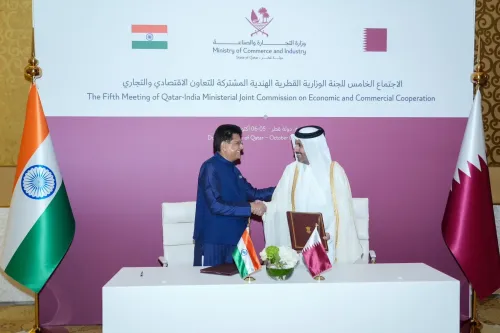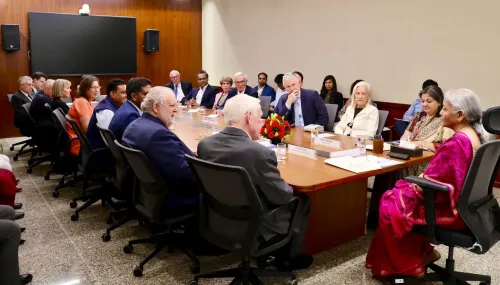Why is South Korea Delaying Google's Map Data Transfer Request?

Synopsis
Key Takeaways
- South Korea has delayed a decision on Google's map data transfer request.
- The move is influenced by U.S. pressure regarding non-tariff barriers.
- National security concerns remain a top priority for the government.
- Previous requests for high-precision map data have been denied.
- The upcoming summit may influence the outcome of this issue.
Seoul, Aug 8 (NationPress) The South Korean government has opted to postpone its decision regarding Google's application to export high-precision map data internationally, as stated by the transport ministry. This decision comes amid ongoing pressure from Washington, which regards the matter as a non-tariff barrier.
In February, the U.S. tech giant submitted a formal request to the National Geographic Information Institute, which operates under the ministry, seeking approval to transfer 1:5,000-scale high-precision map data to its overseas data centers, according to reports from Yonhap news agency.
During its May meeting, the review panel had already extended the deadline for a decision by 60 days, citing the need for further dialogue on national security and the potential ramifications for local industries. A decision was initially expected by Monday.
However, the panel has now opted to extend the deadline by an additional 60 days, as confirmed by the Ministry of Land, Infrastructure, and Transport.
This review panel consists of officials from key ministries, including defense, foreign affairs, industry, science, and the National Intelligence Service.
Officials indicated that this latest extension was made following Google's request, as the company is seeking more time to explore ways to mitigate national security concerns associated with the data exports.
The South Korean government appears to be exercising caution regarding this issue, as reaching a conclusion before potential discussions at an upcoming South Korea–U.S. summit could be sensitive and may affect other agenda items.
Discussions are currently ongoing between Seoul and Washington to finalize a date for a summit involving President Lee Jae Myung and U.S. President Donald Trump, with some reports suggesting it may take place around August 25.
At present, Google utilizes publicly available, lower-resolution 1:25,000-scale map data, supplemented with aerial and satellite imagery, to provide mapping services in South Korea.
The United States has highlighted this issue as a significant non-tariff barrier, despite it being excluded from the recent tariff agreement between the two countries, where the U.S. imposed a 15 percent tariff on South Korean imports in exchange for South Korea's commitment to invest $350 billion in the U.S.
It remains unclear if the data transfer issue will be discussed during the upcoming summit.
Google had previously requested similar approvals for the transfer of high-precision map data in 2007 and 2016, but these requests were denied by Seoul due to national security concerns regarding the potential exposure of military bases and other sensitive facilities.









